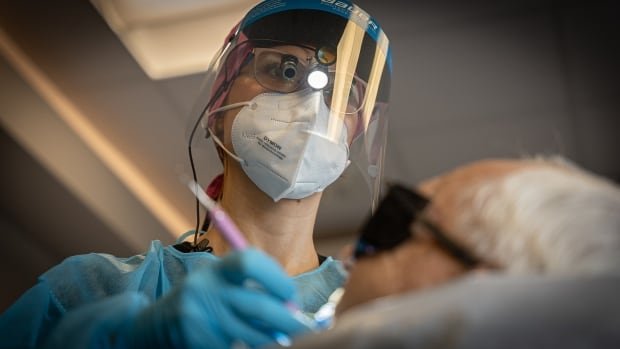Seniors aged 72 and older are currently eligible to enroll in Canada’s national dental health plan, but dentists are not yet able to enroll in the program, although it is expected to begin accepting patients in the coming months.
Health Minister Mark Holland told reporters on Wednesday: “We know there are a lot of questions about health care providers. Those details are in the final stages of negotiations.”
“We’re ready to share information with all health care providers, all dentists at a moment’s notice.”
It is not yet clear how dentists, hygienists and prosthodontists will enroll in the program, how the billing process will work and how much they will be paid for their services.
The $13 billion National Dental Plan is expected to eventually provide dental care to approximately 9 million uninsured Canadians by 2025.
Enrollment in the plan, in which the federal government provides dental benefits to uninsured households with annual household incomes of $90,000 or less, began late last year. Reporting is expected to begin in May this year.
Mr Holland said the federal government was consulting with dental associations across the country to clarify details.
“Fundamentally, we want to make sure dentists are treated fairly, compensated fairly for their services, and have clarity on how that process works,” Holland said. Told.
More than 400,000 seniors have already registered
The federal government is mailing out invitations to seniors aged 70 and older to enroll in the Canada Dental Care Plan, starting with seniors first. Starting today, seniors aged 72 and older will also be eligible. An online portal will be launched in May this year for people aged 65 and over to register.
More than 400,000 seniors have registered so far, Holland said.
“Wait for the letter,” he added.
Dr. Heather Kerr, a Halifax dentist and president of the Canadian Dental Association, said there should be enough dentists to meet demand.
“It depends on where you live…there are some geographic issues,” she said.
Kerr said dentists have long been pushing for a national dental care plan.
“But at the moment it’s very difficult for them to make a decision.” [to take part] “There are a lot of details that haven’t been finalized yet,” she said.
“But trying to get it right is also paramount. We want management to be simple and easy for both patients and hospitals.”
Dr. Brock Nicolucci, president of the Ontario Dental Association, said dentists will also be asked whether patients will be able to choose which clinics they go to and how the new plan will work with existing provincial and territorial dental care programs. He said he wanted to know.
“We have expressed these concerns to Health Canada, but we are not there yet,” he said. “Our concerns are truly valid and important and we want to ensure that the government addresses them before the final rollout.”
Do you have questions about how Canada’s new dental care plan affects you? Email ask@cbc.ca.

